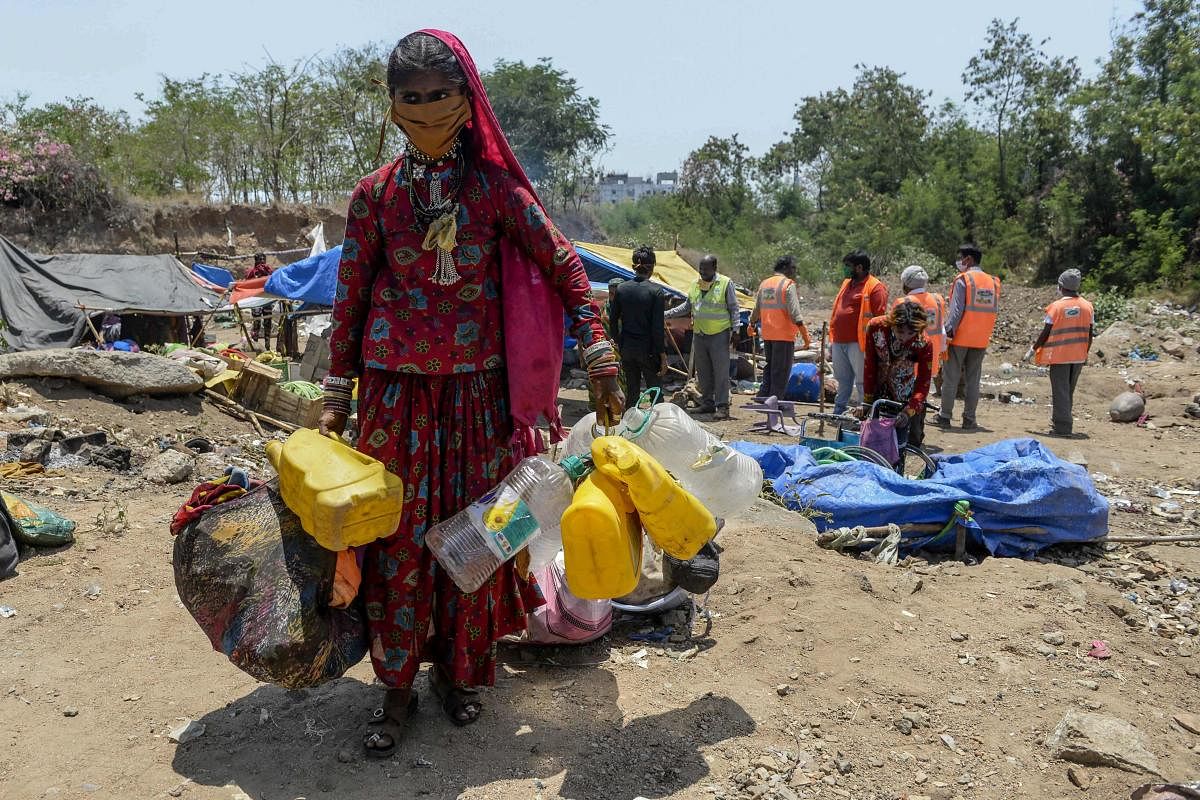
A third round of survey conducted by researchers among migrant workers have once again highlighted the troubles they are facing with 63 per cent of those who participated in the exercise saying that they have less than Rs 100 left with them while more than three-fourth still not have access to rations.
The report by the Stranded Workers Action Network (SWAN), after analysing 821 distress calls corresponding to 5,911 migrant workers it received and telephone chats with 1,963 others during May 15 and June 1 showed that a large proportion who left for their homes in buses and Shramik Special Trains.
According to the report 'To Leave or Not to Leave: Lockdown, Migrant Workers, and Their Journeys Home', 11 per cent of those surveyed through calls from SWAN took trucks, lorries and other such modes of transport while 6 per cent percent made the journey on foot.
"The 68 days of lockdown have resulted in an unprecedented humanitarian crisis. In the first half of the lockdown, migrant workers were coerced to be stranded with no food and money. In the second half the workers’ woes got compounded with a series of chaotic travel orders and gross mismanagement of the repatriation process," the report said.
"While a part of the government’s response is possibly due to the lack of priorities towards the unorganised workforce, a part is also the result of inefficiencies resulting from unilateral decision making. Consequently, the government has created an archive of distress and a museum of misery," it added.
Based on calls by SWAN to 1,963 migrant labourers, it said 62.3 per cent of them spent more than Rs 1,500 for their travel back home but 14.6 per cent did not spend any money. While 4.4 per cent spent Rs 1,000-1,500, 13.8 per cent Rs 500-Rs 1,000 and 4.8 per cent less than 500.
With work being suspended, the report said, 48 per cent of the people surveyed through calls had taken loans between Rs 2000 and Rs 5000. Another 30 per cent took loans of more than Rs 5000. There were 15.1 per cent who took more than Rs 8,000 loans.
Debunking claims that a large number of people have reached their homes and there is no need now to run special trains as economic activities have re-started, the report said 55 per cent of those stranded still want to go home. This is higher than the proportion of 33 per cent in April-end when SWAN reached out to them earlier.
"The desire to return home immediately is not being driven by ‘sentiment’ alone as the narrative that has been whipped up by some media houses and officials. suggests. 75 per cent who are still stuck in places they have migrated to for work, do not have any employment," it said.
Based on 821 distress calls the SWAN received, the report said 80 per cent of them did not have access to government rations. About 76 per cent of people who made the distress calls said they have less than Rs 300 with them while 72 per cent had less than Rs 200 and 63 per cent of people have less than Rs 100 left with them during the second half of May.
About 57 per cent of the people sent in ‘SOS’ calls (representing 820 people) with no money or rations left or had skipped the previous meal, the study said adding it was a "sharp increase" of 7 percentage points from the second phase of lockdown.
